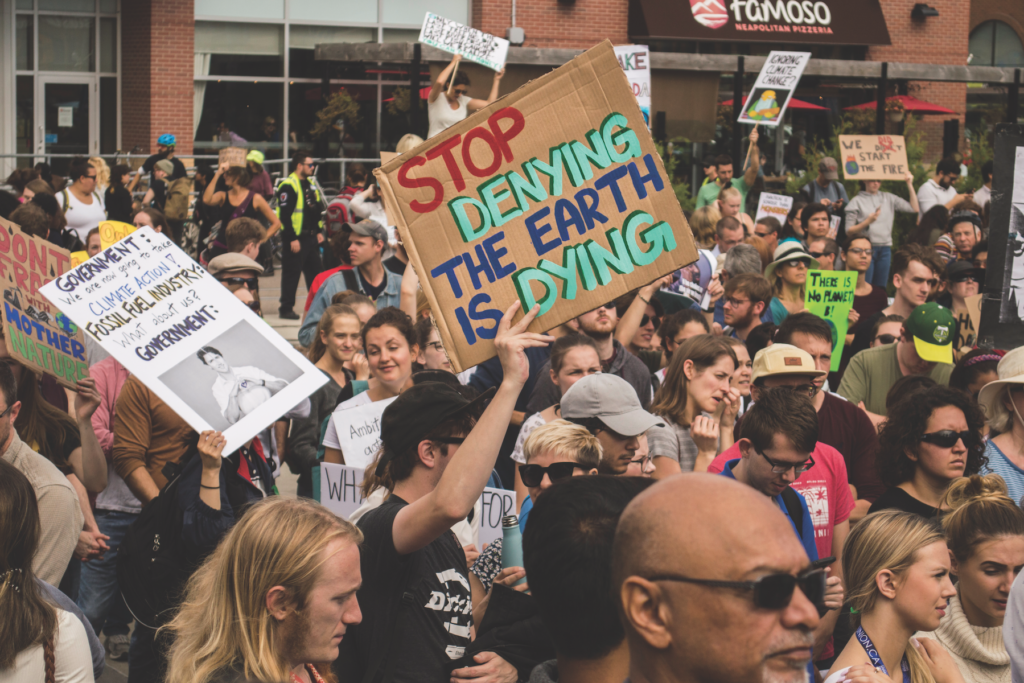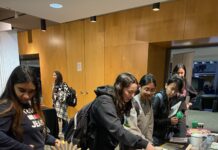
Students protested yet again on Friday, Oct. 25, in front of Dana Porter library as part of the Fridays for Future movement, which calls on people to raises awareness about the climate.
“We do a strike every Friday so that it stays in the conversation, and to let people know that UW is not doing enough in terms of fighting climate change,” Bei Niu, an Environment Resources and Sustainability student, said.
Niu said that the strikes are not organized by any one club but are a collaboration between various clubs on campus and often co-hosted by Fossil Free, which is a Feds Club, and the KW Climate Strike.
Sriranjini Raman, a second-year Environment Resources and Sustainability student who was at the protest said that the Fridays for Future strikes happen at levels; at the local level, provincial level, national level and a global level.
“The global and national strikes happen on dates that are planned and decided by students who want to protest and are with the Fridays for Future, but locally, we just do it every Friday because we think it’s important to raise awareness,” Raman said.
Niu said sudents are demanding UW to take a more proactive approach to fighting climate change, and are critical of the current UW environmental sustainability strategy.
The document is not accessible and is difficult to understand for the general UW community.
“The entire [UW environmental sustainability strategy] document uses professional sounding language and a lot of jargon words are thrown around,” she said.
In 2015, UW established the President’s Advisory Comittee on Environmental Sustainabity and the Sustainaility Office.
Niu pointed out that there is not enough concrete action from UW’s objectives and that using 2015 as the baseline for net carbon emissions is unreasonable.
In Fall 2017, UW disclosed some of its current investments, which showed that the university invested at least $68 million in the top 200 fossil fuel sectors.
“They’re investing in fossil fuel companies [and] basically depending on these companies to make money from extracting fossil fuels which means it’s supporting the sector and profiting from it,” Niu said.
She urged the university to follow suit with the University of California which has recently ended its investment of $150 million in fossil fuel due to the financial risk the industry presents.
“I think UW could look at other options because there are studies out there that indicates that the fossil fuel industry currently a risky investment,” Niu said.
The movement also hopes to raise awareness amongst students to help them be more sustainable, Raman said.
“So many places on campus offer things like bringing your own mug and you get 10 per cent off, so through conscious consumerism, being aware of those small decisions could help you be more sustainable,” she said.































